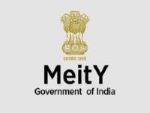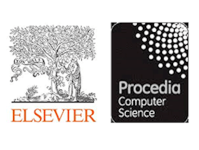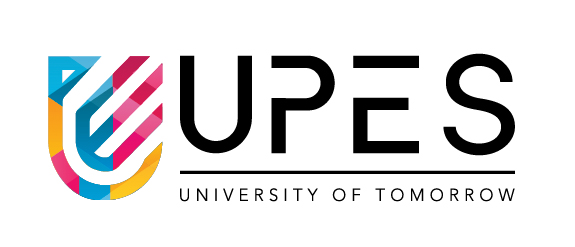

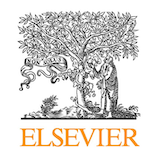
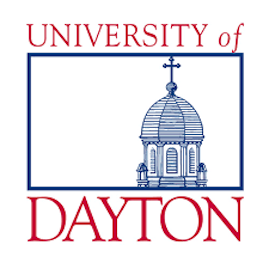
International Conference on Machine Learning and Data Engineering
All accepted papers will be published in Procedia Computer Science Journal, Elsevier
About ICMLDE 2023
The 2nd International conference on Machine Learning and Data Engineering (ICMLDE 2023) is an international venue for the presentation of original research findings, as well as the exchange and dissemination of creative, practical development experiences in various engineering domains. The conference draws researchers and application developers from a wide range of artificial and data engineering related areas along with their algorithms and applications of current issues of almost all branches of Engineering and Technology.
This conference aims to broaden its scope in the areas of Machine Learning and Data Engineering by including expert speeches and presentations from young researchers in each session. The conference aims to enhance the state-of-the-art in Machine Learning and Data Engineering, as well as other promising areas of computing, by encouraging fresh, high-quality research discoveries and inventive solutions to tough machine learning challenges. Researchers, academicians, and professionals from all over the world are invited to submit original, unpublished research papers from all perspectives, including theory, practice, experimentation, and review papers highlighting specific research domains for presentation in the conference's technical sessions.
The conference will create a cross-disciplinary summit that will bridge the gap between departmental, institutional, industrial, public and private research organizations, and global barriers, allowing for the integration of research and education in the emerging field of Machine Learning and Data Engineering.
"ICMLDE 2022 received more than one thousand manuscripts worldwide including Algeria, Bangladesh, China, Czechia, Eswatini, Ethiopia, Finland, France, India, Iran, Iraq, Ireland, Italy, Jordan, Korea, The Democratic People's Republic of Malaysia, Morocco, Nigeria, Norway, Oman, Peru, Philippines, Saudi Arabia, Slovakia, South Korea, Spain, Sri Lanka, Switzerland, Turkey, United Arab Emirates, United Kingdom, United States, Uzbekistan, and Viet Nam. A very high number of high-quality submissions were received from them 273 were accepted for publication in Procedia Computer Science Journal, Elsevier. All papers have been published in Procedia Computer Science, Elsevier, Vol 218, 2023. All accepted papers are available online at www.sciencedirect.com and https://dl.acm.org/. All accepted papers have been indexed in SCOPUS database."
"The ICMLDE 2023 has garnered significant attention, with more than 1000 submissions from over 3,500 contributors spanning across the globe. The submissions are from 45 countries, including India, United States, Russia, Oman, Sri Lanka, Hungary, Nigeria, Saudi Arabia, Viet Nam, Bangladesh, Canada, UK, Malaysia, Australia, Thailand, Ethiopia, Morocco, Norway, Philippines, Spain, Turkey, South Africa, Tunisia, China, France, Zimbabwe, Germany, Cyprus, Czechia, Poland, UAE, Algeria, Finland, Iraq, Netherlands, Saint Barthelemy, Bahrain, Ecuador, Jordan, Peru, Singapore, Switzerland, Uzbekistan, South Sudan."
Important Dates
| Important Dates | |
| Last Date of Paper Submission | 20th August 2023 |
| Acceptance Notification Deadline | 15th October 2023 |
| Camera Ready Manuscript Deadline | 15th October 2023 |
| Conference Registration Deadline | As per notification on or before 30 October 2023 |
| Conference Date | 23-24 November 2023 |
Call for Papers
Original contributions from researchers describing their original, unpublished, research contribution which is not currently under review by another conference or journal and addressing state-of-the-art research are invited to share their work in all areas of ICMLDE 2023 but not limited to the conference tracks.
Conference Sub Themes and Tracks:
| Machine Learning Foundations | Deep Learning and Data Engineering: | |
|
|
|
| Machine Learning and Data Engineering | APPLICATIONS | |
|
|
Conference Committees
Vasant Honavar, Penn State University, USA
Siddhartha Bhattacharyya, University of Illinois, Chicago, USA
Abawajy, Jemal, Deakin University, Australia
Selwyn Piramuthu, University of Caen Normandy, France
Balas Valentina Emilia, Aurel Vlaicu University of Arad, Romania
A Bretto, University of Illinois, Chicago, USA
Danilo Pelusi, University of Teramo, Italy
Joseph Tan, McMaster University, Canada
Gan, Christopher, Lincoln University, New Zealand
Huchang LIAO, Sichuan University, China
Jaime Lloret Mauri, Polytechnic University of Valencia, Spain
Kalpic, Damir, University of Zagreb, Croatia
Larisa Ivașcu, Politehnica University of Timisoara, Romania
Yamaguchi, Shingo, Yamaguchi University, Japan
Panos Liatsis, Khalifa University,UAE
Pao-Ann Hsiung, National Chung Cheng University, Chiayi, Taiwan
Pelusi, Danilo, University of Teramo, Italy
Pilipczuk, Olga, Szczecin University, Poland
Rubén González Crespo, Universidad Internacional de La Rioja, Spain
João Paulo Papa, São Paulo State University, Brazil
Sheng-Lung Peng, National Taipei University of Business, Taiwan
Xiao-Zhi Gao, University of Eastern Finland, Finland
Yaw-Ling Lin, Providence University, Taiwan
Scientific Committee Chairs
João Paulo Papa, São Paulo State University, Brazil
Shingo Yamaguchi, Yamaguchi University, Japan
Syed Afaq Shah, The University of Western Australia
Pelusi, Danilo, University of Teramo, Italy
Suman Deb, National Institute of Technology, Agartala, India
Pankaj Kumar, University of Petroleum and Energy Studies, India
Tein, Weng, Providence University, Taiwan
Abawajy, Jemal, Deakin University, Australia
Antonino Galletta, University of Messina, Italy
Govind Gupta, National Institute of Technology, Raipur, India
Scientific Committee Members
Dante Barone, Federal University of Rio Grande do Sul, Brazil
Dickson Chiu, University of Hong Kong, Hong Kong
Buriro Attaullah, University of Bolzano, Italy
Noor Zaman Jhanjhi, TAYLOR’S UNIVERSITY, Malaysia
Raja Kumar Murugesan, TAYLOR’S UNIVERSITY, Malaysia
Shahin Gelareh, University of Southampton, UK
Gautam Srivastava, Brandon University, Canada
Syed Afaq Shah, University of Western Australia, Australia
Lyes BENYOUCEF, Domaine Universitaire de Saint Jérôme, Francea
Gianni D'Angelo, University of Salerno, Italy
N G J Dias, University of Kelaniya, Sri Lanka
Bruno Carpentieri, Free University of Bozen-Bolzano, Italy
Predrag Stanimirovic, University of Niš,Serbia
Byung-Woo Hong, Chung-Ang University, Korea
Hoda A.Alkhzaimi, New York University, Abu Dhabi
Siyamalan Manivannan, University of Jaffna, Sri Lanka
Saban Ozturk, Amasya Üniversitesi, Turkey
Gamini Wijayarathna, University of Kelaniya, Sri Lanka
Marcin Woźniak, Silesian University of Technology, Poland
Zena Khalil, University of Al-Qadisiyah, Diwaniyah, Iraq
Wilver Auccahuasi Aiquipa, Universidad Privada del Norte, Peru
Hamza Zidoum, Sultan Qaboos University, Sultanate of Oman
Seifedine Kadry , Beirut Arab University Lebanon
Ali Kadhum Idrees , University of Babylon, Iraq
Grzegorz Chodak, Wroclaw University of Science and Technology, Poland
Lamia HAMZA , University A-Mira, Algeria
Danilo Pelusi, University of Teramo, Italy
Piramuthu Selwyn, University of Florida,USA
Gadadhar Sahoo, IIT(ISM) Dhanbad, India
Amaal Al-Hashimy, Sultan Qaboos University, oman
Omar Hussain Omar Alhazmi, Taibah University, Saudi Arabia
Mohamed Firdhous, University of Moratuwa, Sri Lanka
Rahimeh Neamatian Monemi, University of Southampton, UK
Saminda Premaratne, University of Moratuwa, Sri Lanka
Olga Pilipczuk, University of Szczecin, Poland
Quanjin Ma, Universiti Malaysia Pahang, Malaysia
Tor-Morten Grønli , Kristiania University College , Norway
Amlan Basu, University of Strathclyde, UK
Felix Ola Aranuwa, Adekunle Ajasin University, Nigeria
Olusola AJAYI, Adekunle Ajasin University, Nigeria
Akingbesote Alaba, Adekunle Ajasin University, Nigeria
Felix ARANUWA, Adekunle Ajasin University, Nigeria
Syed Afaq Shah, The University of Western Australia ,Australia
Chou Pui May, Taylor's University, Malaysia
Mun Hou Kit, Taylor's University, Malaysia
Dariush Ebrahimi, Lakehead University, Canada
Bruno Carpentieri, Free University of Bozen-Bolzano, Italy
Tabatabaei Yazdi, Nazi Massey University, New Zealand
Natalia Kryvinska, Comenius University in Bratislava, Slovakia
Hamza Zidoum, Sultan Qaboos University, Oman
Sattam Almatarneh, Middle East University, Jordan
S.R. Liyanage, University of Kelaniya, Sri Lenka
Nasser Alzeidi, Sultan Qaboos University, Oman
Seifedine Kadry, Beirut Arab University Lebanon ,
Costin Badica, Noroff University College, Norway
Maria Ganzha, Warsaw University of Technology, Poland
Lyes Benyoucef, University of Touloun,France
Imran Memon, Zhejiang University, China
A. Ramanan, University of Jaffna, Sri Lanka
Diego Molla Aliod, Macquarie University, Australia
Inhi Kim, Kongju National University, South Korea
Ivanna Droniuk, Lviv Polytechnik National University, Ukraine
Jakub Swacha, University of Szczecin, Poland
Jasbir Kaur Dhaliwal, Monash University, Malaysia
Jean-Claude Ngatchou, New Jersey City University, USA
Li Fang, Nanyang Technological University, Singapore
Luis Soares Barbosa, University of Minho, Portugal
M.M. Dastani, Utrecht University, Netherlands
Mitchell McEwan, Macquarie University, Australia
Nor Ilia Anisa Binti Aris, Taylor's University, Malaysia
Oh Kai Siang, Taylor's University, Malaysia
Paramvir Singh, University of Auckland, New Zealand
Remy Dupas, University of Bordeaux, France
Salimur Choudhury, Lakehead University, Canada
SEUNG LEE, NC State University, USA
Shimaa Abdullah Nagro, Saudi Electronic University, Saudi Arabia
Xue Chun, City University of Hong Kong, Hong Kong
Yasmin Fathy, University of Cambridge, UK
Payam Ebrahimi, Vrije Universiteit Brussel, Belgium
Vanesa Daza, Universitat Pompeu Fabra, Spain
Dawid Polap, Silesian University of Technology, Poland
Ella Pereira, Edge Hill University, UK
Euripides Petrakis, Technical University of Crete, Greece
Gelareh Shahin, Portsmouth Business School, UK
Lars Braubach, University of Hamburg, Germany
Maria Ganzha, Warsaw University, Poland
Natalia Kryvinska, University of Vienna, Austria
Olga Fedevych, Lviv Polytechnik National University, Ukraine
Vasilios Katsikis, National and Kapodistrian University of Athens, Greece
Vera Pantelic, McMaster University, Canada
Witold Maranda, Lodz University of Technology, Poland
Xunli Fan, Northwest University, China
Zoltan Mann, University Duisburg-Essen, Germany
Ehsan Ahmad, Saudi Electronic University, Saudi Arabia
Adrian Iftene, Alexandru Ioan Cuza University of Iasi, Romania
Agusti Solanas, University Rovira i Virgili, Spain
Ciprian Dobre, University Politehnica of Bucharest, Romania
Frida Pemer, Oslo Metropolitan University, Norway
Jacob Renzo Bauer, Norwegian University of Science and Technology, Norway
Arun Kumar, National Institute of Technology, Rourkela, India
Navaux Philippe O. A., Federal University of Rio Grande do Sul, Brazil
Jacob T. Prem, Sathyabama Institute of Science and Technology, India
Tinku Singh, Indian Institute of Information Technology, Allahabad, India
Liu Xiao, China Normal University, China
Bo Liu, Massey University, New Zealand
Gaurav Hajela, Maulana Azad National Institute of Technology, India
De Sousa Fabricio Simeoni, University of São Paulo, Brasil
Rekh Ram Janghel, National Institution of Technology, Raipur, India
Leszek Borzemski, Wroclaw University of Science and Technology, Poland
Neetu Sardana, Jaypee Institute of Information Technology, Noida, India
Emil Pricop, Universitatea Petrol-Gaze din Ploiești, Romania
Tianjia Shao, Zhejiang University, China
Xu Zenglin, Harbin Institute of Technology, China
Sergei Chernyi, Saint-Petersburg State Marine Technical University, Russia
Siamac Fazli, Nazarbayev University, Kazakhstan
Fatemeh Daneshfar, University of Kurdistan,Iran
Burns John, Clark University, USA
Nir Lipovetzky, The University of Melbourne, Australia
Hassan Mostafa, Al-Baha University, KSA
Samira Bahia, Deakin University, Australia
Huang, Fujian Normal University, China
Ahmed Albarbari, Arab Open University, Saudi Arabia
David Brander, Technical University of Denmark, Denmark
Gareth Callanan, Lund University, Sweden
Jeffrey Blankenship, Central Connecticut State University, USA
Lov Kumar, Birla Institute of Technology and Science, India
Goutam Sanyal, National Institute of Technology, Durgapur, India
Pradeep Kumar, National Institute of Technology, Raipur, India
Shen Liping, Shanghai Jiao Tong University, China
Ram Kumar Karsh, National Institute of Technology, Silchar, India
Yaregal Assabie, Addis Ababa University, Ethiopia
Daniel Burmester, Victoria University of Wellington, New Zealand
Debabrata Singh, Siksha 'O' Anusandhan, Bhubaneswar, India
Fenza, University of Salerno, Italy , Italy
JIANG Lingxiao, Singapore Management University, Singapore
P. Karthikeyan, National Chung Cheng University, TAIWAN
Roopesh Kevin Sungkur, University of Mauritius, Mauritius
Shruti Jain, Jaypee University of Information Technology, India
Ujjwal Manikya Nath, Jorhat Engineering college, India
NaMark Tamene, Debere Markos University, Ethiopia
Boujemâa Achchab, Hassan 1er University, Morocco
Debasis Tripathy, National Institute of Technology, Silchar, India
D'Angelo, University of Salerno, Italy
Kim Jindae, Seoul National University of Science & Technology, South Korea
Mara Abel, Universidade Federal do Rio Grande do Sul, Brazil
Nasser Tabook, Sultan Qaboos University, Oman
Roopesh Kevin Sungkur, University of Mauritius, Mauritius
Shuran Song, Columbia University, USA
U. Srinivasalu Reddy, NIT, Trichy, India
Yen Hsu-Chun, National Taiwan University, Taiwan
Wilver Auccahuasi, Universidad Continental, Peru
Debbie Perouli, Marquette University, USA
Giovanni Bacci, Aalborg University, Denmark
Junier Oliva, University of North Carolina, USA
Aneta Poniszewska-Maranda, Lodz University of Technology, Poland
Nikolaos Triandopoulos, Stevens Institute of Technology, USA
Prashant Kumar, National Institute of Technology, Durgapur
Sanjay Kumar, SRM University, Delhi-NCR
Sowmya V, Amrita Vishwa Vidyapeetham, India
Y. Lig Lin, Providence University, Taichung
Ajmer Saini, Deenbandhu Chhotu Ram University of Science and Technology, India
Mercado Rizza DC., University of the Philippines ,Philippines
Emily Graetz, University of Michigan, USA
James Papademas, Oakton community college, USA
Marcin Wozniak, Silesian University of Technology, Poland
Sarkar Nurul, Auckland University of Technology, New Zealand
Rasmita Dash, Siksha 'O' Anusandhan University, India
Sajjad Mahmood, King Fahd Univeristy Of Petroleum And Minerals, Saudi Arabia
Vincent Peter Magboo, University of the Philippines Manila, Philippines
Yoohwan Kim, University of Nevada, USA
Amir Kamil, University of Michigan, USA
Dolly Jorgensen, University of Nevada, USA
Chodak Grzegorz, Wrocław University of Science and Technology, Poland
Jyoti Prakash Singh, National Institute of Technology, Patna, India
Mayuri Kharde, National Institute of Technology, Tiruchirappalli,India
Ohue Masahito, Tokyo Institute of Technology, Japan
Sunil Gupta, University of Petroleum and Energy Studies, India
Ram Chandra Bhushan, MNNIT Allahabad, India
Laabadi Soukaina, Hassan II University - Casablanca, Morocco
Velliangiri S, SRM Institute of Science and Technology, Tamilnadu
Shamik Tiwari, University of Petroleum and Energy Studies, India
Yasir Zaki, New York University, Abu Dhabi
Akansha Singh, Bennett University, Greater Noida
S B Goyal, City University, Malaysia
Haibo Zhang, University of Otago, New Zealand
Scott Williams, Bradley University, USA
Bhuiyan Md, Fordham University,USA
Adarsh Kumar, University of Petroleum and Energy Studies, India
Pilipczuk Olga, Szczecin University,Poland
Rifat Shahriyar, Bangladesh University of Engineering and Technology, Bangladesh
Angelo Spognardi, "La Sapienza" University of Rome, Italy
Vinh Truong Hoang, Ho Chi Minh City Open University, Vietnam
Cheng Zixue, University of Aizu,Japan
Anup Kumar, National Institute of Technology, Raipur, India
Subarna Shakya, Tribhuvan University, Nepal
WANG Hai, Singapore Management University, Singapore
Justin Bradley, University of Nebraska-Lincoln, USA
Alok Aggarwal, University of Petroleum and Energy Studies, India
Mehmet Can Vuran, University of Nebraska-Lincoln, USA
Oriola Oluwafemi, Adekunle Ajasin University, Nigeria
Rajesh Kumar, Malaviya National Institute of Technology, Jaipur
Satya Prakash Sahu, National Institution of Technology, Raipur,India
Rajkumar Rajasekaran, Vellore Institute of Technology,India
Zena H. Khalil, University of Al-Qadisiyah, Diwaniyah
Ali Thaeer Hammid, Imam Ja’afar Al-Sadiq University, Iraq
E. Eisemann, Delft University of Technology, Netherlands
Jin-Cheol Heo, Keimyung University, South Korea
James Wills, Oakton community college, USA
Meenakshi Sood, National Institute of Technical Teachers Training & Research, India
Hsiung Pao-Ann, National Chung Cheng University,Taiwan
Ajay Prasad, University of Petroleum and Energy Studies, India
Bol Roland, Uppsala University,Sweden
Sreekanth Madisetti, Woosong University,South Korea
Vivek Tiwari, International Institute of Information Technology, Naya Raipur,India
Aliyu Olubunm, Adekunle Ajasin University, Nigeria
Gopalakrishnan E.A, Amrita Vishwa Vidyapeetham, India
HÃ¥rek Haugerud, Oslo Metropolitan University, Norway
Kiki Adhinugraha, La Trobe University, Australia
Namita Mittal, Malaviya National Institute of Technology, Jaipur
Pankaj Deshwal, Netaji Subhas Institute of Technology, New Delhi
Roland Depratti, Central Connecticut State University, USA
Kemal Polat, Bolu Abant Izzet Baysal University, Bolu, Turkey
Jerry W Sangma, University of Petroleum and Energy Studies, India
Sudeep Tanwar, Nirma University, India
Vivek Tiwari, International Institute of Information Technology, Raipur,India
Alok Singh, University of Oxford, UK
Elias Bareinboim, Columbia University, USA
Hossam Abdel Salam Diab, Taibah University, Saudi Arabia
K. Govinda, VIT University, Vellore
Michael J Dinneen, University of Auckland, New Zealand
Pardeep Kumar, Jaypee University of Information Technology, India
Maniaol Rozano S., University of the Philippines , Philippines
Suman Halder, NIT Durgapur, India
Viviane Pereira Moreira, Federal University of Rio Grande do Sul, Brazil
Aman Jatain, Amity University, Gurgaon,India
Parteek Gupta, University of Petroleum and Energy Studies, India
Mehofer Eduard, University of Vienna,Austria
Hyun Ki Hong, Chung-Ang University, Sourh Korea
Koppala Guravaiah, Indian Institute of Information Technology Kottayam, India
Mette Kaufmann Andersen, Aalborg University, Denmark
Pardeep Singh, National Institute of Technology, Hamirpur
Sadia Sharmin, Bangladesh University of Engineering and Technology, Bangladesh
Kaushik Ghosh, National Institute of Technology, Agartala,India
Vrijendra Singh, Indian Institute of Information Technology, Allahabad,India
Antonio Mana Gomez, University of Malaga, Spain
Enn Ounapuu, Tallinn University of Technology, Estonia
Tian Hui, Beijing Jiaotong University,China
Khalimjon Ergashevich Khujamatov, Tashkent University of Information Technologies, Tashkent
Rajeev Tiwari, University of Petroleum and Energy Studies, India
Rohit Tanwar, University of Petroleum and Energy Studies, India
Gourav Bathla, GLA University, India
Lesourd Martin, Clark University, USA
Partha Pakray, National Institute of Technology, Silchar,India
Prabir Saha, National Institute of Technology, Meghalaya,India
Suman Deb, National Institute of Technology, Agartala,India
Vytautas Bukšnaitis, Vytautas Magnus University, Lithuania
Amjad Mehmood, Kohat University of Science & Technology, Pakistan
Arpita Nagpal, GD Goenka University,India
You Ilsun, Soonchunhyang University,South Korea
Kise Kenji, Tokyo Institute of Technology, Japan
Monalisa Ghosh, National Institute of Technology, Durgapur,India
Vinh Phan Cong, Nguyen Tat Thanh University, Vietnam
Ashish Kumar Sahu, National Institute of Technology, Jamshedpur,India
Sushila Palwe, MIT World Peace University, India
Abhijit Kumar, University of Petroleum and Energy Studies, India
Wan Lanjun, Hunan University,China
Sunil Kumar, UPES, India
Mehmood Amjad, Kohat University of Science and Technology,Pakisthan
Jack Erskine, University of Canterbury, New Zealand
Ilya Ashikhmin, Norwegian University of Science and Technology, Norway
Ahmad Neyaz, University of Electronic Science and Technology of China, China
Mudasir Bhutt, University of Kasmir, India
Prafullata Auradkar, PES University, India
Sandeep Samantaray, National Institute of Technology, Srinagar
Wu Suzhen, Xiamen University,China
Wang Xiaolong, Harbin Institute of Technology, China
De Carvalho Andre Ponce de Leon F, Universidade de São Paulo,Brazil
Muhammad Fazal Ijaz, Sejon University Seoul, South Korea
Imran memon, zhejiang university , China
Sagonas Konstantinos, Uppsala University,Sweden
Mulugeta Libsie, Addis Ababa University, Ethiopia
Pranitha Boddu, National Institute of Technology, Warangal
Anuraj Jain, UPES, India
Jong-Ha Lee, Keimyung University, South Korea
Tannistha Pal, National Institute of Technology, Agartala
Meng Weizhi, Technical University of Denmark, Denmark
Aneas Riener, Technische Hochschule Ingolstadt, Germany
Kaushik Ghosh, UPES, India
Flávio Rech Wagner, Federal University of Rio Grande do Sul, Brazil
Mohd Abdul Ahad, Jamia Hamdard, New Delhi,India
Krishna Chaitanya Rao, University of Massachusetts Amherst, USA
Nallapaneni Manoj Kumar, City University of Hong Kong, Hong Kong
Preethi Ananthachari, Woosong University, Daejeon
Serge Gaspers, University of New South Wales, Australia
Tauseef Khan, Aliah University, Kolkata
Wha Sook Jeon, Seoul National University, South Korea
Deepika Koundal, UPES, India
Alexey Neznanov, HSE University, Russia
Kamińska Anna, Wrocław University of Science and Technology, Poland
Arjun Singh Saud, Tribhuvan University, Nepal
Ashar Khan, Sultan Qaboos University, Oman
Ashutosh Sharma, Southern Fedral University, Russia
Ashish Dutta, Malaviya National Institute of Technology, India
Ashis Kumar Das, Uttar Banga Krishi Viswavidyalaya, India
Ashwani Sharma, Insight Biosolutions,France
Auday Al-Dulaimy, Mälardalen University, Sweden
Muhammad Awais Javed, COMSATS, Islamabad
Premjith B, Amrita Vishwa Vidyapeetham, Kerala
Bach Le, The University of Melbourne, Australia
Gaurav Dhiman, Government Bikram College, Patiala, India
Riyadh Baghdadi, New York University, Abu Dhabi
Eswaran Balamurugan, University of Africa, Nigeria
Byung Jeong Lee, University of Seoul Engineering, South Korea
Chiranji Lal, Vellore Institute of Technology, Vellore,India
Sujatha krishnamoorthy, Wenzhou Kean University, Wenzhou, China
Honorary Patron
Sunil Rai, Chancellor, UPES, India
Honorary General Chair
Ram Sharma, Vice Chancellor, UPES, India
General Chairs
Vijayan K Asari, University of Dayton, Ohio, USA
Ravi S Iyer, UPES, India
Vasant Honavar, Penn State University, USA
Kuan Ching Li, Providence University, Taiwan
Rubén González, Universidad Internacional de La Rioja, Spain
Joseph Tan, McMaster University, Canada
Program Chair(s)
Selwyn Piramuthu, University of Florida, USA
Cheng, Qiang, University of Kentucky, USA
Jaime Lloret Mauri, Polytechnic University of Valencia, Spain
L V Subramaniam, IBM India Research Laboratory, India
Huchang LIAO, Sichuan University, China
Xiao Zhi Gao, University of Eastern Finland, Finland
Organizing Chairs
Vijendra Singh, UPES, India
Technical Chairs
Neelu J. Ahuja, UPES, India
Ajay Prasad, UPES, India
Sunil Gupta, UPES, India
Hanumat Sastry G, UPES, India
Alok Aggarwal, UPES, India
Priya Ranjan, UPES, India
Rajeev Tiwari, UPES, India
Publicity Chairs
Kaushik Ghosh, UPES, India
Rajeshkannan R, Vellore Institute of Technology, India
Manoj Kumar, University of Wollongong, Dubai, UAE
Sujatha Krishnamoorthy, Wenzhou Kean University, Wenzhou, China
Debabrata, Siksha 'O' Anusandhan, Bhubaneswar, India
Ayodeji Olalekan Salau, Afe Babalola University, Ado-Ekiti, Nigeria
Sponsorship Chairs
Pankaj Badoni, UPES, India
Saurabh Jain, UPES, India
Saurabh Shanu, UPES, India
Session Management Chair(s)
Shamik Tiwari, UPES, India
Sanjeev Kumar, UPES, India
Adrash Kumar, UPES, India
Anurag Jain, UPES, India
Deepika Koundal, UPES, India
Parteek Gupta, UPES, India
Ved Prakash Bhardwaj, UPES, India
Rohit Tanwar, UPES, India
Sonali Vyas, UPES, India
Finance Chair(s)
Abhijit Kumar, UPES, India
Achala Shakya, UPES, India
Priyanka Singh, UPES, India
Registration Chair(s)
Shiladitya Bhattacherjee, UPES, India
Shubhi Sharma, UPES, India
Hemant Petwal, UPES, India
Niharika Singh, UPES, India
Tarandeep Kaur Bhatia, UPES, India
Sahinur Rahman Laskar, UPES, India
Food Management committee Chair(s)
Amar Shukla, UPES, India
Rahul Kumar, UPES, India
Vidyanand Mishra, UPES, India
Stage Management committee Chair(s)
Sugandh Sharma, UPES, India
Shubhi Sharma, UPES, India
Tanu Singh, UPES, India
Workshop Chair(s)
Arjun Arora, UPES, India
Pallabi Sharma, UPES, India
Keynote Speakers
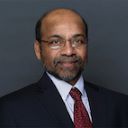
Prof. Vijayan Asari is the University of Dayton Ohio Research Scholars Endowed Chair in Wide Area Surveillance and a professor with the Department of Electrical and Computer Engineering. He is also the director of the Center of Excellence for Computational Intelligence and Machine Vision (Vision Lab). Dr. Asari began teaching as an assistant professor in electronics and communications at TKM College of Engineering, University of Kerala, India. In 1996, he joined the National University of Singapore as a Research Fellow and led a team for the development of a vision-guided microrobotic endoscopy system. In 1998, he joined the School of Computer Engineering at Nanyang Technological University (NTU), Singapore, and led the computer vision and image processing research activities in the Center for High Performance Embedded Systems at NTU. In August 2000, Dr. Asari joined the Department of Electrical and Computer Engineering at Old Dominion University (ODU), Norfolk, Virginia, as a visiting associate professor. In 2001, at ODU, he accepted a tenure track position in electrical and computer engineering. He was tenured in 2006 and promoted to full professor in May 2007. At ODU, he was also the founding director of the Computational Intelligence and Machine Vision Laboratory. Dr. Asari joined the University of Dayton in February 2010. He has received many awards for his teaching, research and leadership including the Vision Award for Excellence in August 2017, Sigma Xi George B. Noland Award in April 2016, and the Outstanding Engineers and Scientists Award for Technical Leadership in April 2015. Dr. Asari has been selected as a Fulbright Specialist by the Fulbright Specialist Program of the U.S. Department of State’s Bureau of Educational and Cultural Affairs (ECA) and World Learning in August 2017. He was elected as a Fellow of SPIE (Society of Photo-Optical Instrumentation Engineers) in November 2018. Dr. Asari has published and co-authored with his graduate students and colleagues, more than 600 research articles, including an edited book on wide area surveillance and more than 100 peer-reviewed journal papers, in the areas of image processing, computer vision, pattern recognition, machine learning, deep learning and high performance digital system architecture design.

Dr Panos Liatsis is a Professor in the Department of Electrical Engineering and Computer Science at Khalifa University of Science and Technology. He received a Ph.D. degree in Electrical Engineering and Electronics from the University of Manchester, UK. Prior to joining Khalifa University, he was Department Chair and Professor at the Petroleum Institute, Head of Department of Electrical and Electronic Engineering and Professor at City, University of London, and faculty in the Department of Electrical Engineering and Electronics at the University of Manchester. Dr Liatsis’ research interests include machine learning, pattern recognition, and computer vision, with applications in biomedical image and signal processing, robotics, and intelligent transportation systems. He published over 350 research contributions in high-impact factor journals, books and international conference proceedings.

LC Mangal, OS & Director DEAL, DRDO is a graduate of BITS Pilani and M. Tech in Communications SignalProcessing from IIT Kanpur. He joined DRDO in Oct1988. He has worked in design and development ofsatellite communication systems, combat net radios anddata links. He has led team for indigenous development of critical technologies of combat net radios, miniature satellite terminals, software defined hub baseband systems and a family of software defined radios. For last20 years many critical technologies were realized such Crypto controlledfrequency hopping based ECCM, Software defined satellite modems and Adhocnetworking protocols.He has received many prestigious awards - Agni Award for Excellence in SelfReliance (2005), DRDO Award for Performance Excellence (2006), AgniAward for Excellence in Self-Reliance (2010) and Agni Award for Excellencein Self-Reliance (2018) as team leader for Ship borne SDR.Currently he is streamlining the development of various militarycommunication systems (SATCOM Terminals, Datalinks and Radios) throughstandardized software defined hardware and software subsystems. Towards thishe is spearheading the development of SDR software standard at national level.

Dr. Anuj Srivastava, a distinguished research professor in the Department of Statistics, has been elected as a 2022 IMS Fellow, joining a class of 39 other researchers from around the world. Srivastava was recognized for his fundamental contributions to geometrical statistics including shape analysis, functional data analysis and statistics on manifolds and for his leadership and service to the profession.Anuj Srivastava received the MS and PhD degrees in electrical engineering from the Washington University in St. Louis, in 1993 and 1996, respectively. He is a professor in statistics with the Florida State University in Tallahassee, FL. After spending the year 1996–97 with the Brown University as a visiting researcher, he joined FSU as an assistant professor in 1997. His research is focused on pattern theoretic approaches to problems in image analysis, computer vision, and signal processing. Specifically, he has developed computational tools for performing statistical inferences on certain nonlinear manifolds. He is a fellow of IAPR.
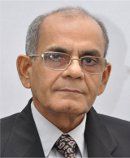
Dr. M. Gopal, Ex-Professor, IIT Delhi, is a globally known academician with excellent credentials as an author, teacher, and researcher. Books authored by Prof M. Gopal on Control Systems, Machine Learning and Deep Learning have been recommended as the core text widely across various Indian universities and institutes. Some of his books have also been reprinted by international publishers and prescribed as text in many other countries, including USA, Australia, Singapore, and Taiwan. His video course “Lecture Series in Control Engineering” (http://www.youtube.com/iit) is one of the most popular NPTEL courses by the IIT faculty. More than a million students, teachers, researchers, and practitioners have used his books and the video course for knowledge acquisition over the past more than four decades. A recognized researcher in the areas of Machine Learning and Control Systems, Prof M. Gopal is the author/co-author of over 150 research papers; the key contributions have been published in various high impact factor journals. He has supervised 16 doctoral research projects (7 of them in the Machine Learning area). His current research interests are in the areas of Deep Learning, Deep Reinforcement Learning, Robotics and Automation. Prof M. Gopal has been the Founding Director of the School of Engineering at Shiv Nadar University Delhi NCR, where he made significant contribution towards designing the curriculum and building the academic infrastructure of the School. His teaching and research stints span about five decades at prestigious institutes and universities including IIT Delhi (three decades), IIT Bombay, BITS Pilani, MNIT Jaipur, Shiv Nadar University Delhi NCR, Universiti Teknologi Malaysia, and City University London. He is currently associated with UPES as a Distinguished Professor, School of Computer Science.
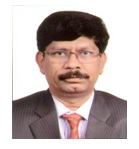
Dr. B. K. Murthy is currently working as GM(Projects) at NIXI-CSC Data Services Ltd before that he was CEO, Innovation and Technology Foundation, IIT Bhilai, Chhattisgarh. He worked in the Ministry Electronics and IT (MeitY), Government of India for 35 year and took VRS as Senior Director (Scientist G) and Group Coordinator (R&D in IT and NKN). He is responsible for promotion of R&D in the area of IT; implementation of the Visvesvaraya PhD Fellowship scheme; National Knowledge Network, Digital India Infoway,Centre for Development of Advanced Computing and National Institute of Electronics & Information Technology. Dr. Murthy spearheaded for bringing out the National Strategy on Blockchain Technology from the Ministry of Electronics and IT which was released in December 2021. Dr Murthy is Currently Adjunct Professor at IIITDM, Kurnool teaching courses CSE and in AI& Data Science. During July 2012 to Feb 2016he was holding the charge of Executive Director, C-DAC, Noida Centre, on deputation fromMeitY. As the Head of the Noida Centre of C-DAC, he was responsible for policy formulation, planning, Design, Development, implementationand deployment of various R&D Projects. He was awarded Ph.D. degree by IIT Delhi. He is instrumental in the initiation of e-learning activities and contributed for the incorporation of Media Lab Asia (currently Digital India Corporation). He also served as Executive Director, National Institute of Electronics and IT, (NIELIT erstwhile DOEACC). He was a member of Technical Committee & Project Approval Board of National Mission on Education through ICT (NMEICT), MHRD; He served as member of Board of Governors Indira Gandhi Technological University for Women, Delhi, IIITs at Allahabad, Gwalior, Kurnool, Kanchipuram. He also served as Guest faculty at IIT Roorkee, IIIT Gwalior, IP Univ. etc. About 30 awards were been received by him interalia Manthan Award 2012, Rajasthan State e-governance award 2012; Skoch Order of Merit (2013); CSI Nihilent e-Governance in 2013; Indian Merchants' Chamber Award 2013; e-north East Award for 2015.E -SafeT Device, developed by C-DAC, Noida has been adjudged as Most Innovative Security Product of the Year 2013 which also fetched the 5theGovSecureIT 2014 Award, Reengineering India Award, 2014; Skoch Award of Excellence (2014); Tamper Evident Recorder project was awarded as the most Innovative Technology of the year 2015. The Virtual Class Room project for conducting Medical Education classes at RIMS Imphal and NEIGHRIMS Shillong has been awarded as Best Projects of North East (2016). Dr. Murthy has been conferred prestigious VASVIK Industrial Research Award for the year 2020 in the Information and Communication Technology.
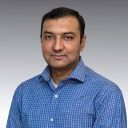
Dr. Bukhari is the Director of Research at CCPS St. John's University, New York. He received his Ph.D. in Computer Science from the University of New Brunswick, Canada, and completed his postdoctoral fellowship at Yale University, USA. He was also a core research team member at CEDAR Metadata Center, Stanford University, USA. With the Stanford team, he studied scientific experimental reproducibility and completed several projects to improve biomedical data FAIRness and reproducibility. Dr. Bukhari received NIH (ORISE) NCBI fellowship in 2016 to work at National Center for Biotechnology Information (NCBI), Bethesda. Dr. Bukhari developed protocols and pipelines (MiAIRR, CAIRR, and CEDAR-to-NCBI ) for the standardized authoring, validating, and submitting scientific data to the NCBI repositories with NCBI Scientists. His developed resources are now considered de facto resources for several biomedical communities such as AIRR-C & Antibody society. At St. John's University, he teaches healthcare Informatics and computer science to graduate and undergrad students. His current research efforts focus on addressing several core problems in healthcare informatics and data science. Dr. Bukhari has received multiple internal and external grants to support his research efforts. His lab has recently received an NSF grant to work on biomedical content authoring and structured publishing.
Workshop
Workshop: 01
Title: Advancing AI for Medical Image Analysis
Resource Person, University of South Australia, Australia

Ivan Lee is an Associate Professor at STEM, and the Technology Development Leader of the Sustainable Infrastructure and Resource Management (SIRM) research concentration at University of South Australia. He is a REDI Fellow in 2022/2023. He received BEng, MCom, MER, and PhD degrees from the University of Sydney, Australia. He was a software development engineer at Cisco Systems, a software engineer at Remotek Corporation, and an Assistant Professor at Ryerson University. His research interests include intelligent sensor, multimedia system, and data analytics. He was a recipient of The Vannevar Bush Best Paper Honorable Mention of 2020 Jointed Conference on Digital Libraries (JCDL); the Lockheed Martin Best Paper Award of 2015 SPIE Defense + Security, Automatic Target Recognition XXV; and the Best Paper Award of 2007 Pacific-Rim Conference on Multimedia. He held leadership roles in the organisation of international conferences, including the General Co-Chair of 2015 International Conference on Intelligent Information Hiding and Multimedia Signal Processing (IIH-MSP), the General Chair of 2013 Australasian Computer Science Week (ACSW), and the Program Co-Chair of the 2008 ACM International Conference on Image and Video Retrieval (CIVR). He currently serves on the committee of National Computational Merit Allocation Scheme (NCMAS) in Australia..
Workshop: 02
Title: Artificial Intelligence and Quantum for Sustainability
IBM Resource Persons, IBM Research Lab, India
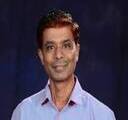
Venkat is working as IBM Quantum India Leader at IBM Research Lab, New Delhi. He received the B.E. degree in Electronics and Communication Engineering from Mysore University, the M.S. degree in Electrical Engineering from Washington University, St. Louis, USA, and the Ph. D. degree in Electronics from the Indian Institute of Technology, New Delhi, India. I joined IBM Research India in 1998 where I currently lead a team of world class researchers developing Neuro Symbolic AI and Quantum AI technologies. I am also an IBM Master Inventor. He is on the Board of Studies of DAIICT, Gandhinagar, since 2020. He was on the Senate of IIIT Delhi 2013-2015. He has been on PhD thesis committees in IIT Madras, India, DAIICT, India, IIT Delhi, India, Univ of Maryland, Baltimore County, USA, and IIIT Delhi, India.
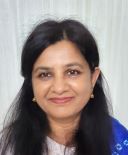
Trapti Kalra is the Artificial Intelligence Leader and IBM Quantum Ambassador at IBM. She possesses a well grounded experience in Applied and Generative AI, and is exploring Quantum ML Technology and its applications for Client use cases. She is an Open Group certified Distinguished Data Scientist, IBM Certified Qiskit Developer, holds patents in AI, and helps her Clients build their strategy around AI and applied Quantum ML. She possesses a strong technical acumen, the ability to understand business imperatives, high degree of learnability in emerging technology. Trapti is an electrical engineer with MS in IT and has 23 years of industry experience..
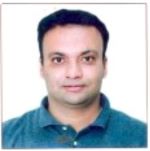
Tanveer has a strong hands-on experience in building Scalable Artificial Intelligence Based Solutions including Deep Learning, Machine Learning, Edge computing and Recommendation systems.He has solved many complex problems in the area Computer Vision and NLP in an innovative way. Most of the solution He built have been deployed in Production and are being used by Clients. Tanveer’s area of interest is AI on Edge. One of the AI solution built by Tanveer had a won Best Customer Experience initiative award in World Retail Congress At Madrid (2018 – Sponsored by google). For this solution Tanveer has received Major Outstanding Technical Achievement Award from IBM CEO Mrs. Ginny Rometty. This is the highest technical recognition in IBM globally. Tanveer has taken multiple internal trainings AI for various geographies and cotaught course for IIMU. Mentored multiple Data Scientists and had been involved in building AI practice in IBM by taking interviews of Potential hires. Tanveer has one granted Patent, 4 filed patents and 3 defensive publications. He is also a part of Robotics and AI Invention Disclosure committee that is responsible for evaluating potential patents. Tanveer believes in sharing knowledge and learning from others experience.
Workshop: 03
Title: Computing with EEG- A Case Study on Affective Multimedia Content Analysis and Motor Rehabilitation

Priya Ranjan graduated from IIT Kharagpur, India and earned his advanced degrees of MS (EE) and Ph.D. (ECE) at the University of Maryland, College Park, USA in 1999 and 2003 respectively. His latest interest is in biological computation, oncological multimedia processing, MRI, EEG and ECG processing along with his ICMR senior research fellow (SRF) Ms. Arti Taneja, Research Scholars Mr. Burhan, Mr. K. D. Shrivasatava etc. in a lab titled Health Analytics and Data Vizualization Environment (HAVE) he established jointly with Prof. Rajiv Janardhanan in 2018.In particular his emphasis is on developing software tools for affordable early detection of different reproductive cancers, heart malignancies, mental anomalies using EEG and EcoG signals. He has been helping biologists and pathologists by designing and implementing user interfaces friendly to their way of working and generating innovative results for next generation of analysis for bio-professionals. He truly believes that a multi-way productive collaboration with biologists, public health professionals and clinical scientists with bio-informatics and bio-computational suite of tools will lead to next knowledge revolution for humanity towards better health facilitation. He has also written a search tool for exploring Ayurved related documents under a DST training program which was well appreciated by Vaidyas for Gurukul Kangri. He has received many large project awards from some of the most reputed agencies like National Science Foundation (NSF), DARPA (Credited with development of the Internet), ICMR, Delhi University, and DBT.

Sanjay Kumar is an Assistant Director and the group leader for Cognition and Cognitive Neuroscience research group at the Centre for Psychological Research at Oxford Brookes University, UK. He has a wide expertise in Cognitive and Clinical Neurosciences with specific focus on EEG/ERP and TMS investigations and Neuropsychological assessments. He is module leader and key contributor to several undergraduate and postgraduate modules.
Workshop: 04
Title: Augmented Reality Development: Marker-Based AR with Vuforia and Unity 3D
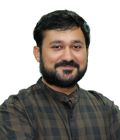
Dr. Anmol Srivastava specializes in Human-Computer Interaction. In 2019, he received his Ph.D. from India's pioneering UE and HCI Lab at IIT Guwahati. He is the founder and director of Creative Interfaces Lab in the Department of Human Centred Design at IIITD. Anmol explores emerging technologies' potential to facilitate utility, usability, and creative self-expression in various contexts and use cases. His research output has received several awards at the national and international levels. His current research focuses on AR/VR, the Metaverse, and Tangible User Interfaces.
Paper Submission
A. Guidelines for Paper Submission
(1) Authors are invited to submit their paper electronically using a Procedia Computer Science template written in English, with a length of up to 10 pages, a full paper presenting the results of original research or an innovative paper, and a short paper that is partially completed with a theoretically established idea to practical applications relevant to the conference. Over the ten (10) page limit, additional pages per paper will be charged. Authors should add the session id on the upside of the title of the manuscript if they wish to submit it under a special session.
Special Session
| S.no | Session ID | Details of Special Session | |
| 1. | ICMLDE.001 | Topic | Machine Learning and Applications |
| Session Chairperson | Dr. Rajkumar R | ||
| Members | Dr. E. Sathiyamoorthy | ||
| Organization | VIT University, Vellore, India | ||
| vitrajkumar@gmail.com; esathiyamoorthy@vit.ac.in | |||
| 2. | ICMLDE.002 | Topic | Machine Learning Applications for Healthcare Data Analytics |
| Session Chairperson | Dr Premjith B | ||
| Members | Dr Sowmya V; Dr Gopalakrishnan EA; Dr Jyothish Lal G | ||
| Organization | Amrita Vishwa Vidyapeetham, Coimbatore, India | ||
|
b_premjith@cb.amrita.edu; v_sowmya@cb.amrita.edu; ea_gopalakrishnan@blr.amrita.edu |
|||
| 3. | ICMLDE.003 | Topic | Deep Learning based Smart Healthcare Systems |
| Session Chairperson | Dr. Debabrata Singh, Prof. Bibhudatta Sahoo and Dr. Nibedan Panda | ||
| Members | |||
| Organization | Siksha ‘O’ Anusandhan (Deemed to be University), Bhubaneswar, India; National Institute of Technology, Rourkela,India; KIIT Deemed to be University, Bhubaneswar,India |
||
|
debabratasingh@soa.ac.in; bdsahu@nitrkl.ac.in; nibedan.pandafcs@kiit.ac.in |
|||
| 4. | ICMLDE.004 | Topic | Deep Learning and Data Engineering for knowledge discovery |
| Session Chairperson | Dr. Akansha Singh and Dr. Krishna Kant Singh | ||
| Members | |||
| Organization | Bennett University, India; Amity University, Noida, India |
||
| akanshasing@gmail.com; krishnaiitr2011@gmail.com | |||
| 5. | ICMLDE.005 | Topic | Evolving Smart Technologies in Data Engineering |
| Session Chairperson | Dr. Meenakshi Sood and Dr.Shruti Jain | ||
| Members | |||
| Organization | National Institute of Technical Teachers Training & Research, Ministry of Education, Govt. of India, Chandigarh, India ; Jaypee University of Information Technology,India. |
||
| meenakshi@nitttrchd.ac.in; shruti.jain@juitsolan.in | |||
| 6. | ICMLDE.006 | Topic | Recent advancement toward healthcare Informatics |
| Session Chairperson | Prof. Neetu Sardana | ||
| Members | Dr. Ankit Vidyarthi | ||
| Organization | Jaypee Institute of Information Technology, Noida, India | ||
| neetu.sardana@jiit.ac.in; ankit.vidyarthi@jiit.ac.in | |||
| 7. | ICMLDE.007 | Topic | Smart Healthcare Systems |
| Session Chairperson | Dr. Sujatha Krishnamoorthy | ||
| Members | Dr. Nasser Mustafa | ||
| Organization | Wenzhou Kean University, China | ||
|
krishnsu@kean.edu; namustaf@kean.edu |
|||
| 8. | ICMLDE.008 | Topic | Advancements in Generative Artificial Intelligence: A Paradigm Shift from Language Processing towards Creative Generation Models |
| Session Chairperson | Dr. Pronaya Bhattacharya and Dr. Sudeep Tanwar | ||
| Members | |||
| Organization | Amity University, Kolkata, India; Nirma University, Ahmedabad, Gujarat, India |
||
| pbhattacharya@kol.amity.edu; sudeep.tanwar@nirmauni.ac.in | |||
| 9. | ICMLDE.009 | Topic | Machine Learning and IoT for Computer Vision |
| Session Chairperson | Dr. Velliangiri Sarveshwaran and Dr Karthikeyan Periyasamy | ||
| Members | |||
| Organization | SRM Institute of Science and Technology, Kattankulathur Campus,India; National Cheng Chung University, Taiwan |
||
| vellians@srmist.edu.in; karthi@ccu.edu.tw | |||
| 10. | ICMLDE.010 | Topic | Recent Advancements in Data Analysis |
| Session Chairperson | Dr. A. Rama | ||
| Members | Dr. V. Rajinikanth and Dr. K. Suresh Manic | ||
| Organization | SIMATS Deemed University, Chennai, India; National University of Science and Technology, Oman |
||
|
ramaa.sse@saveetha.com; v.rajinikanth@ieee.org; sureshmanic@nu.edu.om |
|||
| 11. | ICMLDE.011 | Topic | Application of Machine Learning to Engineering Innovations |
| Session Chairperson | Dr. Ayodeji Olalekan Salau | ||
| Members | |||
| Organization | Afe Babalola University, Ado-Ekiti, Nigeria | ||
| ayodejisalau@abuad.edu.ng | |||
| 12. | ICMLDE.012 | Topic | Machine Learning-Based Framework for Gathering and Leveraging Intelligent Web Data |
| Session Chairperson | Dr. Sherin Zafar | ||
| Members | |||
| Organization | Jamia Hamdard, New Delhi, India | ||
| sherin.zafar@jamiahamdard.ac.in | |||
| 13. | ICMLDE.013 | Topic | Biomedical Data Analysis Using Machine Learning |
| Session Chairperson | Dr. Sushila Palwe | ||
| Members | |||
| Organization | MIT World Peace University, Pune, India | ||
| sushila.palwe@mitwpu.edu.in | |||
| 14. | ICMLDE.014 | Topic | ML-Enabled Intelligent Computing for Emerging Applications |
| Session Chairperson | Dr. Manoj Diwakar | ||
| Members | Dr. Prabhishek and Dr. Anchit | ||
| Organization | Graphic Era deemed to be University, Dehradun, India; Bennett University, Greater Noida, India; British University Vietnam, Hanoi, Vietnam |
||
|
manoj.diwakar@gmail.com; prabhisheksingh88@gmail.com; anchit.b@buv.edu.vn |
|||
| 15 | ICMLDE.015 | Topic | Machine Intelligence for IoT and Blockchain |
| Session Chairperson | Dr. Gaurav Dhiman | ||
| Members | Dr. Giridhar Reddy Bojja and Dr. Surbhi B. Khan | ||
| Organization | Chandigarh University, India; Dakota State University, USA; University of Salford, Manchester, UK |
||
|
gdhiman0001@gmail.com; giridhar.bojja@trojans.dsu.edu; S.Khan138@salford.ac.uk |
|||
| 16. | ICMLDE.016 | Topic | Deep Learning Advances in Computer Vision and IoT |
| Session Chairperson | Dr. Deepak Arora and Dr. Puneet Sharma | ||
| Members | |||
| Organization | Amity University, Lucknow, India; Amity University, Noida, India |
||
|
deepakarora@live.co.uk; dr.puneetsharma9@gmail.com |
|||
| 17. | ICMLDE.017 | Topic | Machine Learning in Bioinformatics |
| Session Chairperson | Dr. B. Surendiran and Dr. Sweeti Sah | ||
| Members | Dr. Lakshmana Kumar Ramasamy | ||
| Organization | National Institute of Technology, Puducherry, India; Higher Colleges of Technology, UAE |
||
| surendiran@nitpy.ac.in | |||
| 18. | ICMLDE.018 | Topic | Machine Learning Architecture for Pattern Recognition |
| Session Chairperson | Dr. Nikhil Kumar | ||
| Members | Dr. Renato R. Maaliw III | ||
| Organization | Indian Institute of Information Technology, Bhopal, India; Southern Luzon State University, Quezon, Philippines |
||
|
nikhilsinghmanit@gmail.com; rmaaliw@slsu.edu.ph |
|||
| 19. | ICMLDE.019 | Topic | Inspecting and Debugging in Deep Learning and Machine Learning Models |
| Session Chairperson | Dr. Mohit Mittal | ||
| Members | Dr. Kanika Bhalla | ||
| Organization | Knowtion GmbH, Germany; Washington University in St. Louis, School of Medicine, USA |
||
|
mittal.mohit02@gmail.com; bhalla@wustl.edu |
|||
| 20. | ICMLDE.020 | Topic | Machine Learning IoT Services |
| Session Chairperson | Dr. Dawid Połap and Dr. Deepika Koundal | ||
| Members | Dr. Natalia Wawrzyniak | ||
| Organization | Silesian University of Technology, Poland; UPES, India; Maritime University of Szczecin, Poland |
||
|
Dawid.Polap@polsl.pl; dkoundal@ddn.upes.ac.in; n.wawrzyniak@pm.szczecin.pl |
|||
| 21. | ICMLDE.021 | Topic | Application of Deep learning and Machine learning for Healthcare Analytics |
| Session Chairperson | Dr. Priyanka Rastogi | ||
| Members | Dr. Ginni Arora | ||
| Organization | Manav Rachna International Institute of Research & Studies, India | ||
|
priyankarastogi.fet@mriu.edu.in; ginnisehgal.fet@mriu.edu.in |
|||
| 22. | ICMLDE.022 | Topic | Advancements in Medical Image Analysis using Deep Learning |
| Session Chairperson | Dr. Shubham Mahajan | ||
| Members | |||
| Organization | Noroff University College, Norway | ||
| mahajanshubham2232579@gmail.com | |||
| 23. | ICMLDE.023 | Topic | Advanced Machine Learning Techniques for EEG-based Brain-Computer Interfaces |
| Session Chairperson | Dr. Gagan Vishwakarma | ||
| Members | Dr. Ismail Keshta | ||
| Organization | Indian Institute of Information Technology, Bhopal, India; AlMaarefa University, Riyadh, Saudi Arabia |
||
|
gagan.manit2020@gmail.com; imohamed@mcst.edu.sa |
|||
| 24. | ICMLDE.024 | Topic | Advancement of human disease prediction using the Internet of medical things (IoMT) |
| Session Chairperson | Dr. Ankur Gupta | ||
| Members | Dr. Syed Rameem Zahra and Dr. Rahul Kumar | ||
| Organization | Netaji Subhas University of Technology, New Delhi, India; Rajiv Gandhi Institute of Petroleum Technology, Amethi, India |
||
| ankur.gupta@nsut.ac.in | |||
| 25. | ICMLDE.025 | Topic | Machine Learning Applications and Intelligent Technologies |
| Session Chairperson | Dr. Priyanka Kumar | ||
| Members | Dr. Suman Bhunia, Dr. P N Kumar and Dr. Rimjhim Padam | ||
| Organization | University of Texas, Texas, USA; Miami University, Oxford, USA; Amrita Vishwa Vidyapeetham, India |
||
|
priyanka.kumar@utsa.edu; bhunias@miamioh.edu; pn_kumar@cb.amrita.edu |
|||
| 26. | ICMLDE.026 | Topic | Decoding Human Actions: Advancements in Human Activity Recognition |
| Session Chairperson | Dr. Kulvinder Singh and Dr. Rohit Tanwar | ||
| Members | Dr. Mazdak Zamani | ||
| Organization | Kurukshetra University, India; UPES, India; Felician University, New Jersey, USA |
||
|
ksingh2015@kuk.ac.in; rohit.tanwar.cse@gmail.com; ZamaniM@felician.edu |
|||
| 27. | ICMLDE.027 | Topic | Federated learning for IoMT-applications |
| Session Chairperson | Dr. T. Poongodi Dr. D. Sumathi Dr. Runumi Devi Dr. B. Balamurugan |
||
| Members | |||
| Organization | Galgotias University, Delhi-NCR, India; Vellore Institute of Technology, Andhra Pradesh, India; Shiv Nadar University, Delhi-NCR,India |
||
|
tpoongodi2730@gmail.com; sumathi.research28@gmail.com; runumimony@gmail.com; kadavulai@gmail.com |
Registration
| Category | Registration Deadline(As per notification on or before 30 October 2023) |
| INDIAN DELEGATES (INR) | |
| Regular Author | 11000 |
| Students Author | 10000 |
| Industry Professional | 12000 |
| Listener (Non-Author/Co- Author/General Participants) | 4000 (per person) |
| INTERNATIONAL DELEGATES (US $) | |
| Regular Author | 350 |
| Students Author | 300 |
| 2nd paper, Author from other countries | 250 |
| Listener (Non-Author/Co- Author/General Participants) | 150 |
| WORKSHOP | |
| Registered Authors of ICMLDE 2023 (Certificate will be provided for all the participants) |
Free |
| Non-Author/General Participants | 4000(Indian Rupees)per person |
1. Details on how to pay the registration fee through wire transfer are provided to participants.
2. Delegates/authors paying by wire transfer should use the following account information and submit their bank transaction slip and other pertinent information to info@icmlde.org.
| Name of Beneficiary | ICMLDE CONFERENCE |
| Name of the Bank | YES Bank |
| Branch Name | IFC, 8th Floor Sb Marg, Mumbai |
| Complete Postal Address | Yes Bank Tower, IFC2, 8th Floor Sb Marg Elphinstone, Mumbai, 400013 |
| Account No. of Beneficiary | UPESUK877777852 |
| IFSC Code | YESB0CMSNOC |
| Type of Account | Savings |
| NOTE: | [Make a NEFT Transaction only] |
| Name of Beneficiary | UPES |
| Purpose | ICMLDE CONFERENCE |
| Name of the Bank | YES Bank |
| Account No. of Beneficiary | 011594600000224 |
| Branch Code | 000115 |
| Branch IFSC Code | YESB0000115 |
| Swift Code | YESBINBB |
| Type of Account | Savings |
| Complete Postal Address | Ground Floor, 56, Rajpur Road, Dehradun, Uttarakhand, India- 248001 |
Sponsorship
Sponsorship of ICMLDE-2023 will provide a unique opportunity for an organization or company to increase its visibility and product awareness within a highly specialized, influential community. For ICMLDE-2023 sponsorship opportunities please contact to organizer: info@icmlde.org
| Gold Sponsor (Rs 2 Lakh) |
 |
BENEFITS:
|
| Silver Sponsor (Rs 1 Lakh) |
 |
BENEFITS:
|
| Bronze Sponsor (Rs 0.5 Lakh) |
 |
BENEFITS:
|
Contact Us
For Enquiry :
Dr. Vijendra Singh
Organizing Chairs
School of Computer Science,
University of Petroleum & Energy Studies,
P.O. Bidholi Via-Prem Nagar
Dehradun-248007
Email id: info@icmlde.org;
vijendra.singh@ddn.upes.ac.in
Whatsapp: 8800642397
